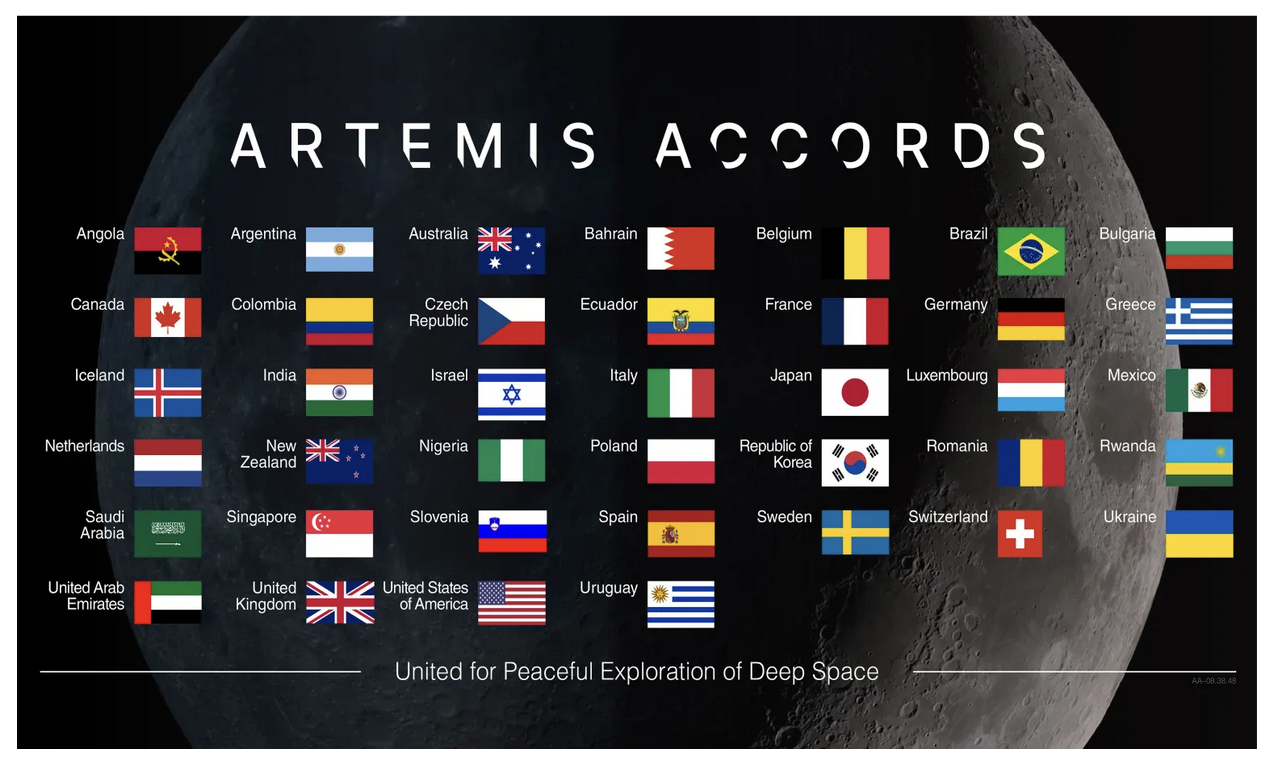News Excerpt:
Sweden recently signed The Artemis Accord.
More About the News: Sweden became the 38th country to sign the accord. The accords are a series of non-binding arrangements aimed at setting down norms to be followed in outer space.

- The Artemis Accords, initially introduced by NASA and the US Department of State in 2020, now boast 38 signatories, including India and Japan.
- They outline key obligations from the 1967 Outer Space Treaty and emphasize adherence to the Registration Convention and the Rescue and Return Agreement.
- Additionally, they promote responsible behavior such as the public release of scientific data. This agreement comes amid a new era of space exploration, characterized by a shifting landscape of participants.
- While the US maintains its leadership, China is rapidly advancing. Russia, though inheriting the legacy of the Soviet Union, struggles to replicate past successes, highlighted by setbacks like the Luna-25 mission failure and issues with its sections of the International Space Station.
- India and Japan are emerging as formidable players, having achieved successful moon landings. Presently, the United States, India, and Japan stand as the leading spacefaring nations party to the Artemis Accords.
Space Law & Outer Space Treaties:
- With the advent of human space exploration, legal considerations swiftly followed. In response to the Soviet Union's launch of Sputnik in 1957, the United Nations General Assembly swiftly established the Committee on the Peaceful Uses of Outer Space (COPUOUS) in the following year. Subsequently, in 1960, the International Institute of Space Law, an independent organization, emerged with the aim of fostering international collaboration in the development of space-related legal frameworks.
- Committee on the Peaceful Uses of Outer Space (COPUOUS): Established in 1958 and made permanent in 1959, COPUOUS is a significant committee within the United Nations, acting as a pivotal hub for international discussions on peaceful space exploration. COPUOUS facilitates information exchange, monitors space activities, and promotes global cooperation in space endeavors. It comprises two subcommittees established in 1962 to address legal issues, scientific, and technical advancements, with administrative support provided by the United Nations Office for Outer Space Affairs (UNOOSA).
- COPUOUS is instrumental in formulating and upholding five treaties and accompanying principles governing space exploration. The cornerstone treaty, the Outer Space Treaty ratified in 1967, enshrines key provisions such as the freedom of space exploration for all nations, the prohibition of weapons of mass destruction in space, and the liability of states for damage caused by their space objects.
- The United Nations has convened three UNISPACE conferences since 1968, focusing on topics ranging from international cooperation in space exploration to protecting the space environment and enhancing access to space for developing nations. The most recent conference, UNISPACE+50 in 2018, celebrated the 50th anniversary of the first conference and addressed the evolving role of COPUOUS in a rapidly expanding space exploration landscape.


